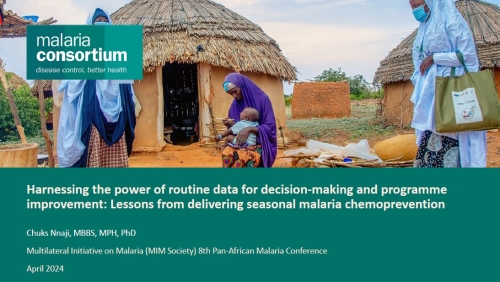Publications

Publication Date:
26/04/2024
Author:
Chuks Nnaji
Type:
Presentation

Harnessing the power of routine data for decision-making and programme improvement: Lessons from delivering seasonal malaria chemoprevention
Publication Date:
26/04/2024
Author:
Chuks Nnaji
Type:
Presentation

Publication Date:
26/04/2024
Author:
Chuks Nnaji
Type:
Presentation
Publication

Harnessing the power of routine data for decision-making and programme improvement: Lessons from delivering seasonal malaria chemoprevention
Publication Date:26/04/2024
Author:
Chuks Nnaji
Type:
Presentation
To ensure efficient and effective use of data for decision-making, it is crucial to bridge the gap between producers of data and users of data.
Routine programme data is a valuable resource for tracking progress, identifying performance gaps and informing decisions and actions for improvements. In practice, routine data is often under-utilised for planning and decision-making in programmes. Data-informed decision-making (DIDM) approaches empower stakeholders at all levels to identify programme delivery gaps and prioritise corrective actions. We have made continued efforts to enhance DIDM within the SMC programme over the past five years, including recent improvements to data management tools, process adaptations and DIDM capacity strengthening.
This oral presentation was given at the Multilateral Initiative on Malaria (MIM) Society's 8th Pan-African Malaria Conference.
Country: Mozambique | Nigeria | Uganda
Keywords: Data-informed decision-making | Malaria | SMC
« Back to Publications